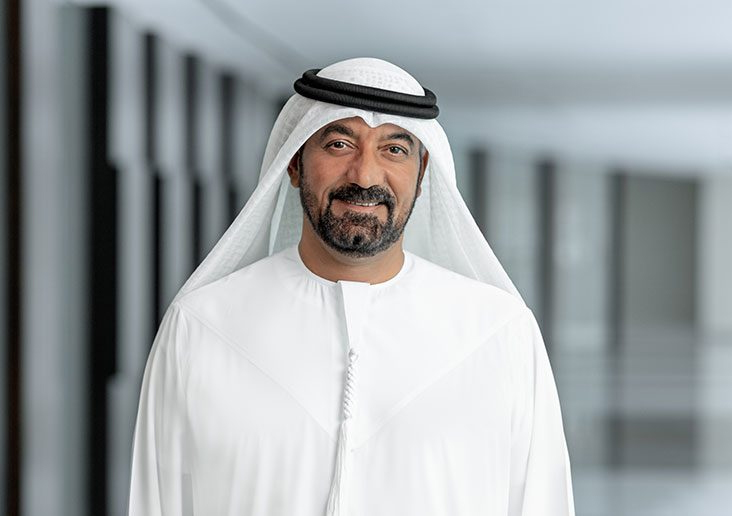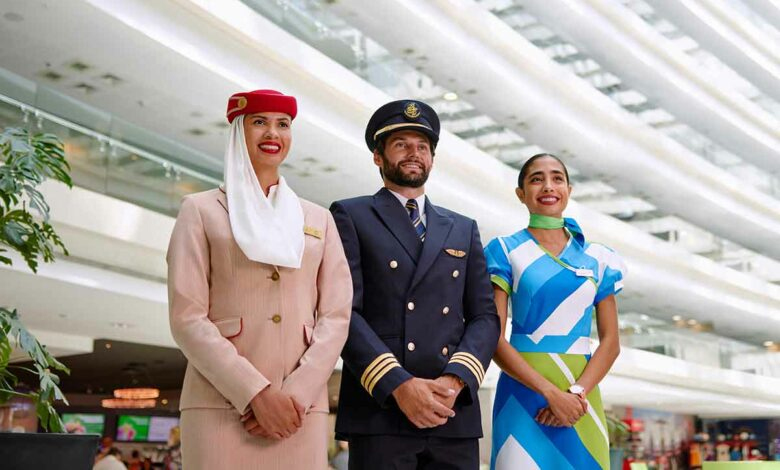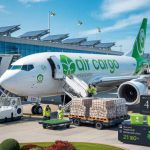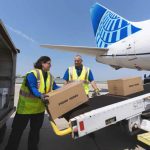Emirates Group's latest profit soars by 71% to AED 18.7 billion
DUBAI, UAE: Emirates Group’s profit for financial year 2023- 2024 ending on 31 March 2024 soared by 71 percent to AED 18.7 billion (US$ 5.1 billion), the highest ever recorded in its history, enabling the firm to give out massive bonuses to its employees.
According to its latest annual report, Emirates Group posted a record profit of AED 18.7 billion (USD 5.1 billion), up 71% compared with an AED 10.9 billion (US$ 3.0 billion) profit in FY 2022-2023. The Group’s revenue was AED 137.3 billion (US$ 37.4 billion), an increase of 15% over last year’s results. The Group’s cash balance was AED 47.1 billion (US$ 12.8 billion), the highest ever reported, up 11% from last year.
Both Emirates and dnata saw significant profit and revenue increases in 2023-24, as the Group expanded its operations around the world to meet strong customer demand for its high-quality products and services.
Profits surpass pandemic losses
Combined Group profits for the last 2 years, at AED 29.6 billion, surpass pandemic losses of AED 25.9 billion during 2020-2022.
His Highness Sheikh Ahmed bin Saeed Al Maktoum, Chairman and Chief Executive, Emirates airline and Group said: “The Emirates Group has once again raised the bar to deliver a new record performance. Throughout the year, we saw high demand for air transport and travel related services around the world, and because we were able to move quickly to deliver what customers want, we achieved tremendous results. We are reaping the benefit of years of non-stop investments in our products and services, in building strong partnerships, and in the capabilities of our talented people.
“Huge credit is also due to the UAE’s visionary leaders, especially HH Sheikh Mohammed bin Rashid Al Maktoum, Vice President and Prime Minister of the UAE and Ruler of Dubai. It is thanks to their leadership and the nation’s progressive policies that the Emirates Group is able to flourish. Both Emirates and dnata have forged successful business models leveraging Dubai’s unique advantages, in turn generating enormous value for Dubai and the communities they serve around the world.”
HH Sheikh Ahmed noted the Group’s excellent financial performance puts in a strong position for future growth and success.
Many major projects are already underway, including: a multibilliondollar aircraft fleet and cabin renewal program; new catering, cargo, and ground handling capabilities; advanced technologies to support the Group’s operations; expanded training and people development programs; and initiatives to progress the Group’s sustainability agenda.
In 2023-24, the Group collectively invested AED 8.8 billion (US$ 2.4 billion) in new aircraft, facilities, equipment, companies, and the latest technologies to support its growth plans.
The Group’s total workforce grew by 10% to 112,406 employees, its largest size ever, as Emirates and dnata continued recruitment activity around the world to support its expanding operations and bolster its future capabilities.
The Group took significant strides in its sustainability journey during 2023-24, putting into action numerous initiatives focused on the environment, its people, customers, and communities.
Environmental topics were high on the agenda during the year, as the UAE hosted the world’s biggest conference for climate action, COP28, in Dubai.
In 2023-24, Emirates signed new supply agreements to uplift sustainable aviation fuel (SAF) at its Dubai hub for the very first time, and also in Amsterdam and Singapore. The airline operated the first A380 demonstration flight using 100% SAF in one engine, collecting data to support industry efforts to enable a future of 100% SAF flying.
Recognizing that airlines today have the limited viable solutions to meaningfully reduce carbon emissions, Emirates established a US$ 200 million fund to support R&D projects that focus on reducing the impact of fossil fuels in commercial aviation. It also became a founding entity of Air-CRAFT, a UAE-based research consortium for renewable and advanced aviation fuels; and joined The Solent Cluster, a UK initiative focused on producing low-carbon fuels for a variety of sectors, including aviation.
dnata eyes greener projects
dnata continued to invest and induct more electric and hybrid vehicles to its global fleet of ground support equipment (GSE), adding new baggage tractors, cargo loaders, and pushback tractors to its USA operations.
It also converted and refurbished dieselpowered GSEs in Italy to run on Hydrogenated Vegetable Oil and electric power. dnata’s UAE businesses including dnata logistics, Arabian Adventures, Alpha Flight Services and City Sightseeing Worldwide, transitioned to biofuel for its landside fleet of vehicles.
During the year, dnata became the first combined air services provider to receive the International Air Transport Association’s environmental management (IEnvA) certification for its commitment to sustainability across its UAE businesses; and Emirates achieved IEnvA Stage One and the IEnvA Illegal Wildlife Trade module certifications, for its efforts in environmental stewardship and anti-wildlife trafficking.
The Group ramped up investments in people development, rolling out a comprehensive program of learning and training options for its workforce in partnership with top universities and key industry partners. A Gender Balance Council was established to champion and promote gender equality within the Group.
“We enter our 2024-25 financial year on strong foundations for continued growth. Emirates will receive delivery of 10 new A350 aircraft in 2024-25, adding to our fleet mix and supporting the next phase of its network growth. dnata will continue to leverage synergies and scale across its business divisions to grow its footprint and capabilities. In tandem, we are investing resources to minimise our environmental impact, develop our people, look after our customers and the communities we serve,” said Sheikh Ahmed.
“The business outlook is positive, and we expect customer demand for air transport and travel to remain strong in the coming months. As always, we will keep a close watch on costs and external factors such as oil prices, currency fluctuations, and volatile environments caused by socio-political changes. Our business model has been tested before, and I am confident in our resilience and ability to respond quickly to opportunities and challenges,” he added.
He further noted, “Looking further ahead, the Dubai government has announced plans to start the next phase of expansion at Al Maktoum International Airport, which will eventually be the new hub for Emirates and dnata’s operations. This AED 128 billion (US$ 35 billion) investment will significantly expand and enhance Dubai’s aviation and logistics infrastructure, supporting the city’s growth, and Emirates’ and dnata’s growth.
Emirates hit record-profit with nearly 60 mn passengers carried
Emirates’ total passenger and cargo capacity increased by 20% to 57.7 billion ATKMs in 2023-24, recovering to near pre-pandemic levels. Providing customers with more connection options, Emirates restarted services to Tokyo Haneda, added capacity to 29 destinations, and launched new daily flights to Montréal, Canada. Emirates also inked codeshare and interline agreements with 11 new airline partners, further extending its network’s reach. By 31 March 2024, the Emirates network comprised 151 destinations across six continents, including 10 cities served by its freighter fleet only.
Emirates brought its flagship A380 and popular Premium Economy product to even more cities this year, as 16 more aircraft rolled out of its US$ 2 billion cabin retrofit program, fully refurbished with the airline’s latest signature products. As of 31 March 2024, the Emirates A380 served 49 destinations, and customers could enjoy Emirates’ Premium Economy experience to and from 15 cities around the world.
Total fleet count at the end of March was 260 units, with an average fleet age of 10.1 years.
Emirates’ order book stands at 310 aircraft, after it announced orders worth US$ 58 billion combined, for 110 additional units of Boeing 777s, 787s, and Airbus A350s at the 2023 Dubai Airshow. These new generation widebody aircraft will replace older jets and support fleet growth, aligning with the airline’s long-standing commitment to fly modern aircraft that are efficient to operate, and able to offer customers the latest inflight comforts and experiences.
With increased capacity deployment and strong demand across markets, Emirates’ total revenue for the financial year increased 13% to AED 121.2 billion (US$ 33.0 billion). Currency fluctuations and devaluations in some of the airline’s major markets, notably the Pakistani Rupee, Egyptian Pound, and Indian Rupee, negatively impacted the airline’s profitability by AED 2.0 billion (US$ 0.6 billion).
Driven by the voracious appetite for travel across customer segments, the strength of its global network, and the appeal of its products, the airline hit a new record profit of AED 17.2 billion (US$ 4.7 billion) exceeding last year’s AED 10.6 billion (US$ 2.9 billion) result, with an exceptional profit margin of 14.2%, marking it the best performance in the airline’s history.
Emirates carried 51.9 million passengers (up 19%) in 2023-24, with seat capacity up by 21%. The airline reports a Passenger Seat Factor of 79.9%, rising from 79.5% last year. Passenger yield declined 2% to 36.6 fils (10.0 US cents) per Revenue Passenger Kilometer (RPKM), due to a change in cabin and route mix, fares and currency.
Emirates SkyCargo reaffirms lead in global cargo industry
Emirates SkyCargo reaffirmed its position in global air logistics and trade, carrying 2.2 million tons of goods around the world in 2023-24, up 18% from the previous year, as increased passenger operations expanded available cargo capacity, and the leasing of three 747 freighters during the year unlocked immediate capacity to serve demand on busy routes.
This reflects the high customer demand for its specialist logistics solutions, the reach and connectivity of Emirates’ global network, Dubai’s world-class sea-air hub capabilities, and the fruits of Emirates SkyCargo’s ongoing investments in digital technology, infrastructure, and products. Despite continued challenges in global logistics, the cargo division reported a solid revenue of AED 13.6 billion (US$ 3.7 billion), contributing 11% to the airline’s total revenue. Cargo yield per Freight Ton Kilometer (FTKM) declined by 32%, returning to pre-pandemic marketplace levels.
During the year, it launched Emirates Vital and Emirates Medical Devices, two purpose-built cargo solutions to serve the unique requirements of the life sciences and healthcare sector. It also launched Emirates Delivers in Kuwait to connect shoppers there with e-commerce brands in the UK, the US, and the UAE. Emirates Delivers is poised to scale significantly in the coming years, focusing on markets underserved by business-to-consumer delivery solutions.
At the end of 2023-24, Emirates’ SkyCargo’s total freighter fleet stood at 11 Boeing 777Fs. The cargo division expects delivery of its 5 additional Boeing 777Fs on order from mid- 2024.
Under Emirates Group companies and subsidiaries, Emirates Flight Catering and MMI/Emirates Leisure Retail (ELR) reported notable results in 2023-24.
Emirates Flight Catering hit record revenues of AED 970 million (US$ 264 million) from its external customers, driven by traffic growth at Dubai’s airports. It supplied 76.9 million meals to airline customers, 19% more than the previous year, and saw rising demand for its other ancillary businesses including at Linencraft, its laundry facility which primarily serves airline and hospitality clients.
















